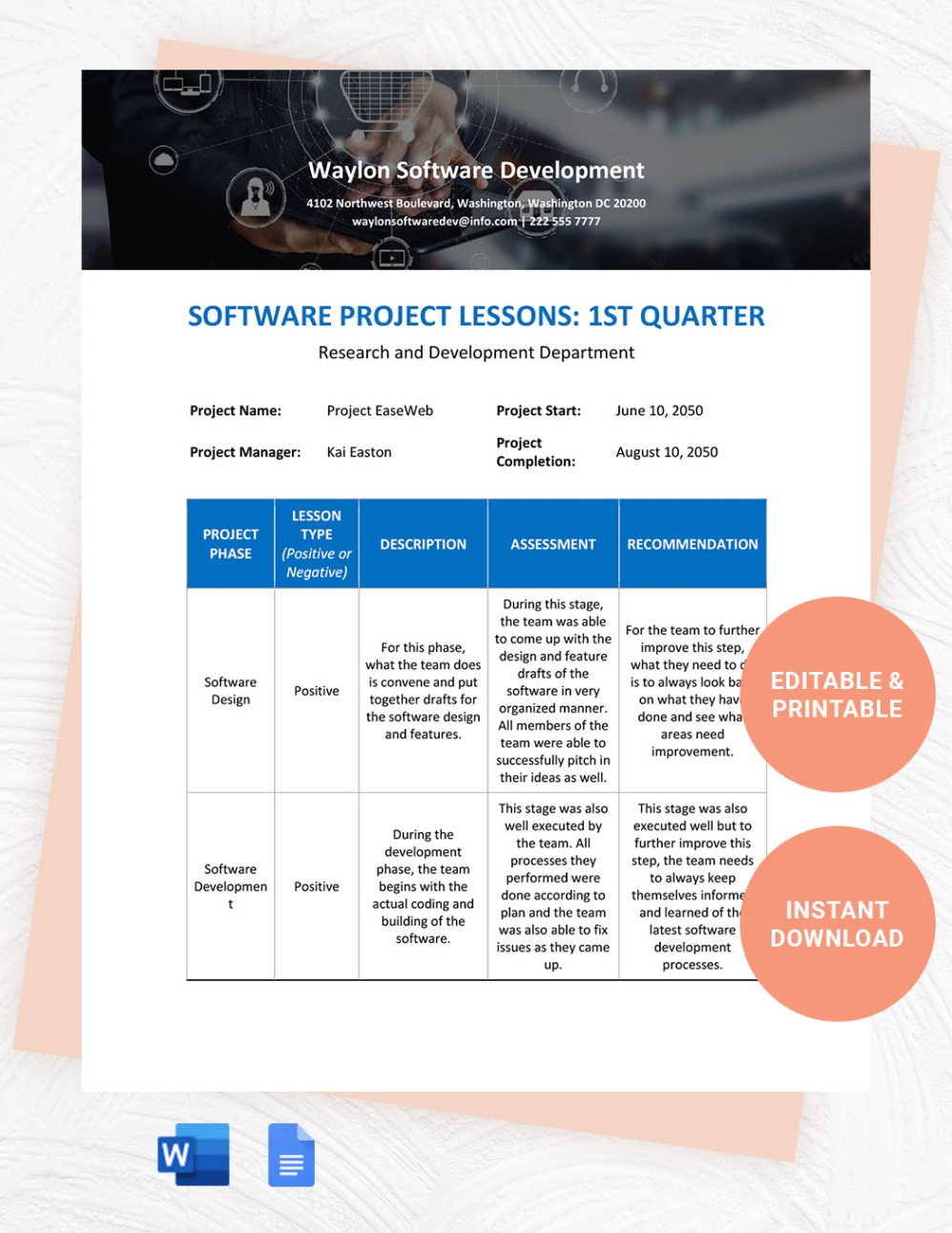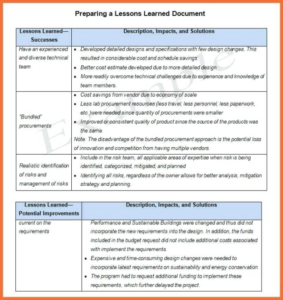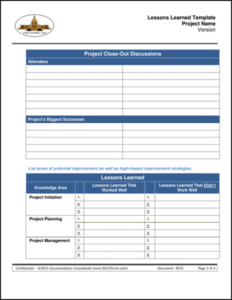Lessons learned questionnaire template.A questionnaire template works as a foundational device for gathering beneficial data efficiently and systematically. It is a structured framework designed to assist respondents via a series of questions, guaranteeing that the gathered details matters and accurate. Whether in study, marketing, health care, or education, questionnaires have actually ended up being important for comprehending patterns, opinions, and actions. Crafting an efficient questionnaire template is not simply a matter of convenience yet a crucial facet of ensuring the success of any kind of data collection effort.
Among the vital advantages of using a questionnaire template is the consistency it provides. A well-designed layout makes certain that every participant is presented with the exact same collection of inquiries, eliminating variations that might skew the outcomes. This consistency is crucial for creating similar data across varied respondents, making it less complicated to examine and draw meaningful conclusions. A standardized layout additionally saves time for researchers, as they do not need to create brand-new concerns for each study.
Another advantage lies in its flexibility. Survey templates can be customized to match numerous demands, from academic study to customer satisfaction studies. As an example, services use themes to evaluate client preferences and improve their services, while educators may utilize them to assess student discovering end results. With a variety of formats readily available– flexible, closed-ended, multiple-choice, or Likert range– themes can satisfy different study objectives and methodologies.
Creating a questionnaire template entails a fragile balance in between simpleness and comprehensiveness. Overwhelming respondents with way too many inquiries can lead to fatigue, reducing the high quality of their solutions. Alternatively, a set of questions that does not have deepness may fail to record useful understandings. Consequently, the inquiries need to be tactically selected to resolve the study’s goals while valuing the respondent’s time and effort.
In addition to adaptability, questionnaire themes improve the top quality of the inquiries. Inadequately worded or unclear concerns can bring about inaccurate actions and incomplete information. Themes commonly include pre-validated question styles and reaction options, reducing the probability of complication among participants. For instance, themes might include Likert scales, multiple-choice concerns, or flexible questions that have been checked for clarity and significance.
An additional vital factor to consider in designing a questionnaire template is brevity. Lengthy or overly challenging surveys can discourage involvement, leading to insufficient actions or abandonment. It is vital to concentrate on gathering only one of the most significant details. A concise theme values the respondent’s time while still achieving the desired research goals. Pretesting the survey with a little sample team can aid identify and resolve any kind of problems before full release.
The mode of distribution can affect the performance of a questionnaire template. Online devices and platforms, such as Google Forms and SurveyMonkey, have made it much easier to disperse and examine studies. These tools usually come with pre-designed layouts, better streamlining the procedure for scientists. Nonetheless, the option of tool must align with the target audience. While digital sets of questions are excellent for tech-savvy groups, published variations could be better for populaces with minimal net gain access to.
Using themes also promotes inclusivity. They are developed with availability in mind, making certain respondents from varied backgrounds can quickly understand and finish them. Features such as multilingual support, instinctive designs, and clear instructions aid engage a wider audience, causing more depictive information. This inclusivity is important for research study intending to attend to social or international problems.
Regardless of their advantages, improperly made set of questions design templates can bring about deceptive results. Ambiguous or leading inquiries might puzzle participants or affect their solutions, endangering the stability of the data. Consistently evaluating and refining design templates based on feedback and results from previous surveys is essential to maintain their efficiency.
Free survey layouts are a beneficial tool for creating efficient questionnaires. By following the suggestions in this short article, you can choose the ideal template and develop a set of questions that fulfills your details demands. With a properly designed set of questions, you can gather the information and insights you require to make enlightened choices. Bear in mind, the key to creating an efficient questionnaire is to maintain it concise, certain, and varied. By adhering to these ideas, you can produce a set of questions that will certainly offer you with the details you require to achieve your goals.




